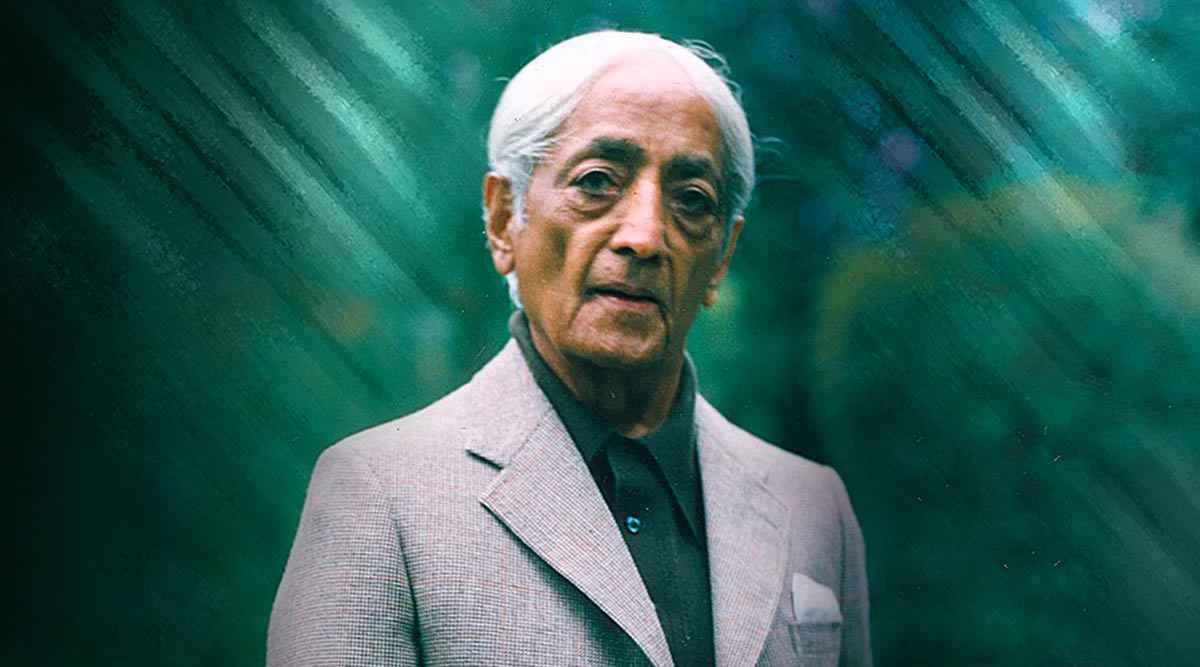Krishnamurti
Through self-knowledge alone can suffering come to an end. After all, what does suffering mean – not as a verbal explanation, but as a fact? How does suffering arise, not merely as a scientific observation, but actually? In order to know, to find out, surely discontent is essential.
One must be thoroughly discontented in order to find out. But when there is discontent – and most of us are discontented – we find an easy way of smothering that discontent. We become something – clerks, governors, ministers, or what you will – anything to smother that flame, that spark, that dissatisfaction.
Materially as well as psychologically we want to be sure, we want to be secure, we do not want to be disturbed. We want certainty, and where the mind is looking for certainty, security, there is no discontent; and most of us spend our lives doing this, we are all seeking security.
Obviously there must be physical security, food, clothing and shelter; but that is denied when we seek psychological security – psychological security being self-expansion through physical necessities. A house in itself is not important except as shelter, but we use the house as a means of self-aggrandizement.
That is why property becomes very important, and hence we create a social system which denies the right distribution of food, clothing and shelter. So, it is discontent that drives, that creates, that urges us on; and if we can understand discontent without smothering it by the search for certainty, psychological security, if we can keep that discontent and its flame alive, then our problem is simple; because, that very discontent is creative, and from that we can move on.
The moment we smother discontent, put it away, resist it, hide it, then the mind is concerned merely with the reconciliation of effects, and discontent is no longer a means of going forward, plunging into something unknown. That is why it is so important for each one really to understand oneself.
The study of oneself is not an end, but a beginning; because, there is no end in understanding oneself, it is a constant movement. If you observe yourself very carefully, you will see that there is no fixed moment when you can say, `I understand the whole totality of myself’, it is like reading many volumes. The more one studies oneself, the more there is to be studied.
Therefore, the movement of the self is timeless; and that self is not the high or the low, but the self which is from moment to moment, with its actions, its thoughts, its words. That self-knowledge is the beginning of wisdom, and in that self-knowledge one discovers a state of utter tranquility in which the mind is not made still, but is still; and only when the mind is still, when it is not caught up in the thought process or occupied with its own creations – only then is there creativeness, is there reality.
It is this creativeness, this perception of reality which will free us from our problem, not the search for an answer to the problem. So, self-knowledge is the technique of meditation, and without self-knowledge there is no meditation.
Self-knowledge is not something acquired from a book, or from a guru or teacher. Self-knowledge begins in understanding oneself from moment to moment, and that understanding requires one’s full attention to be given to each thought at any particular moment without an end in view.
Excerpted from a talk in New Delhi, 19th December, 1948. The 125th birth anniversary of J. Krishnamurti was observed on May 11.







